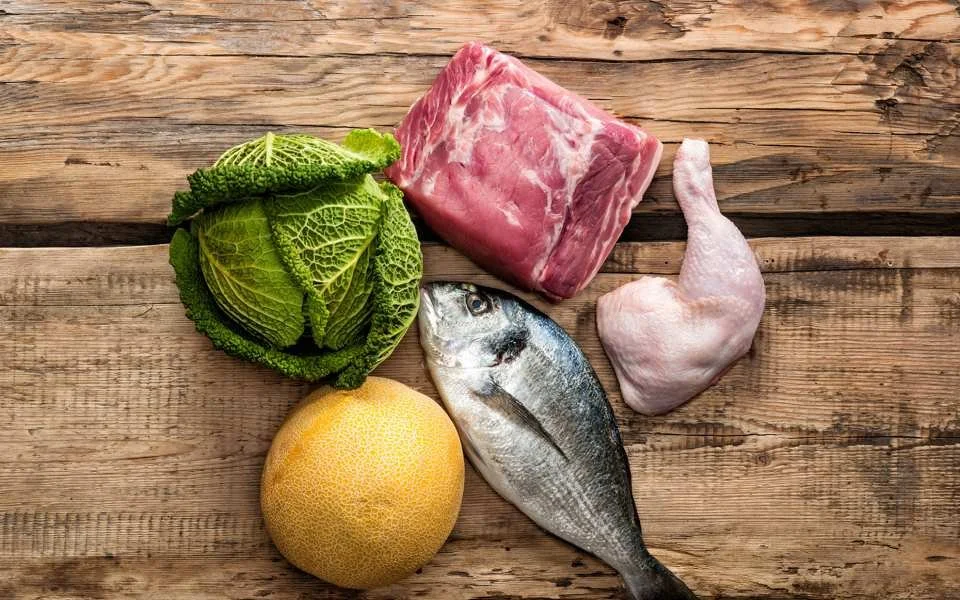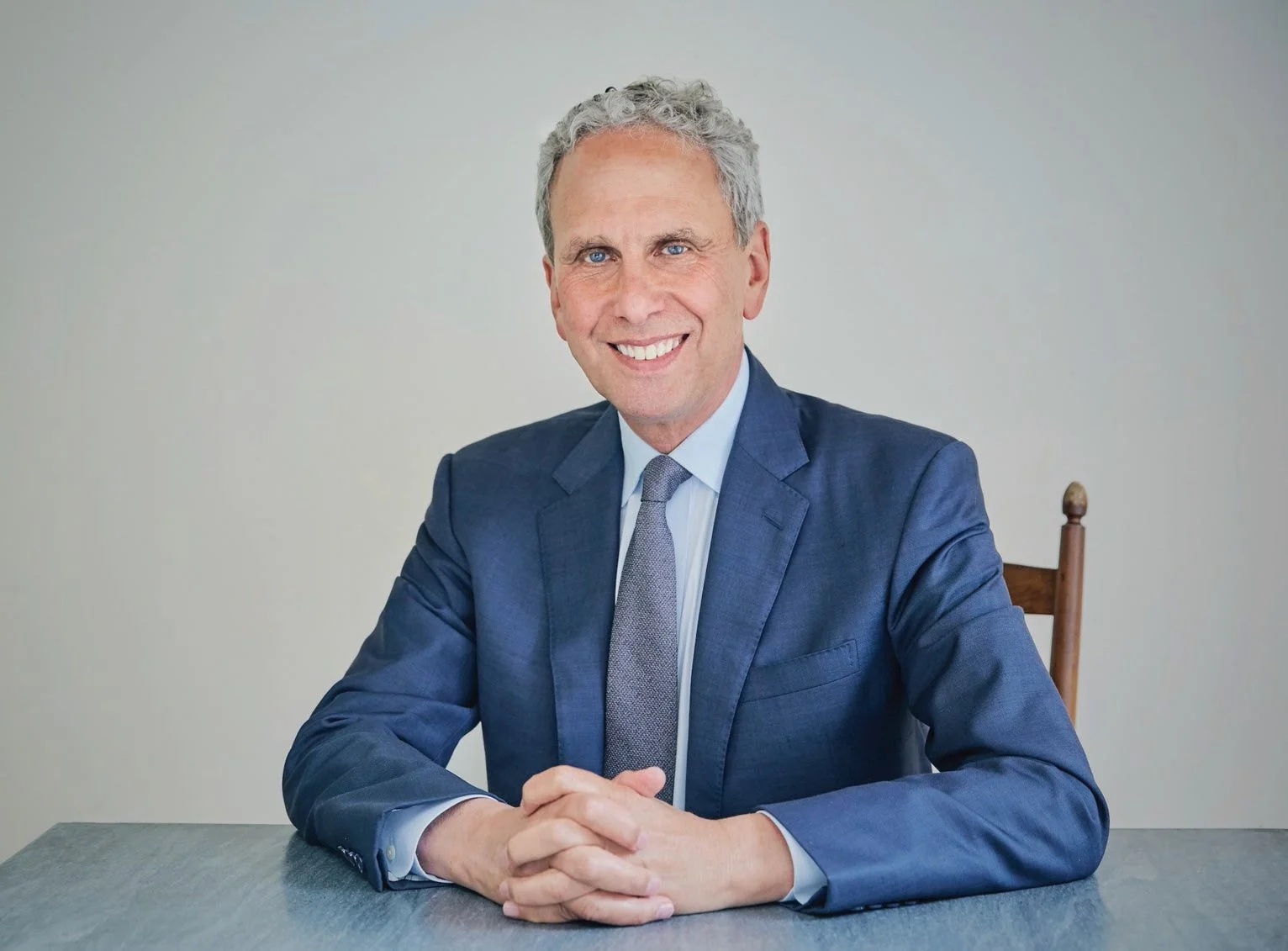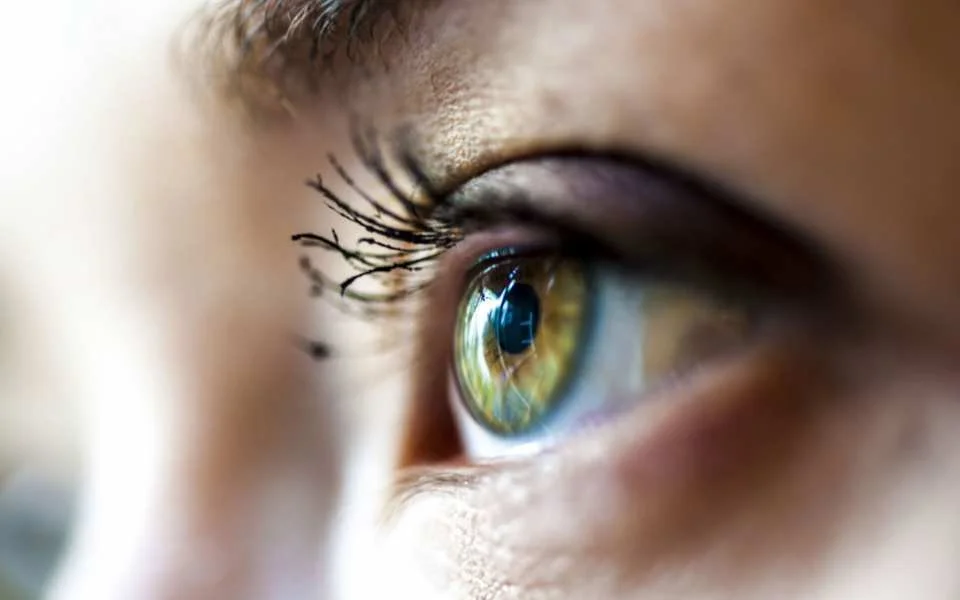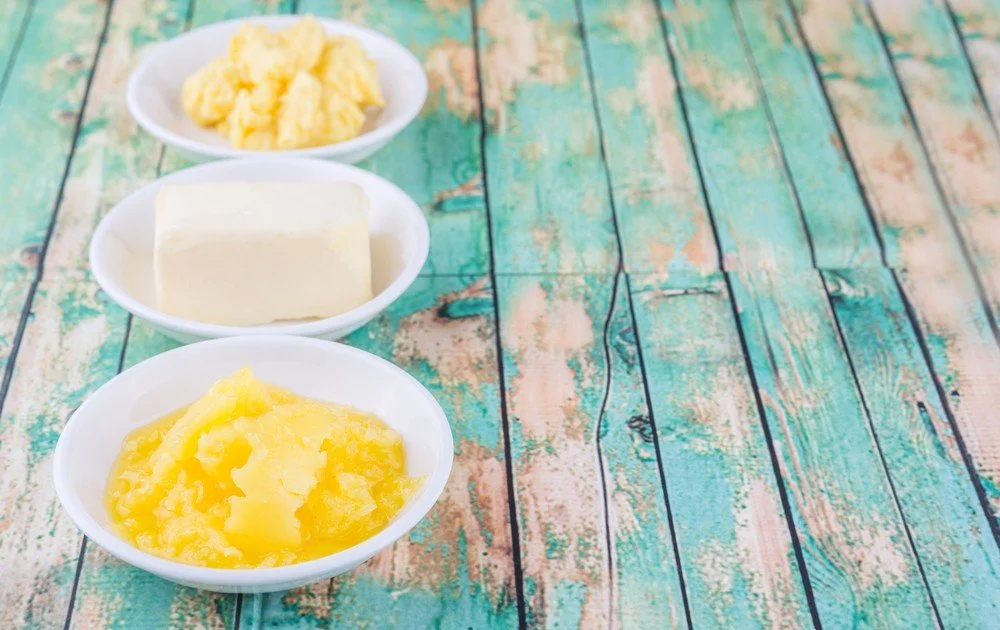Paleo Diet & Ayurveda: Healthy or Harmful?
1 MINUTE OVERVIEW
The Paleo Diet (and other similar ones) and the general Paleo philosophy is great in terms of focusing us back on ‘real’ food (eliminating processed/junk food), minimising or avoiding alcohol, caffeine and sugar, as well as for promoting good exercise. However, according to ancient, time-tested health sciences such as Ayurveda, the heavy emphasis on meat, and completely avoiding grains, dairy, and legumes is not ideal.
It’s the ignorant way we consume these foods in our modern world, not the foods themselves, that is harmful. Consume them as they were designed and we can get all the benefits of the Paleo diet, plus even more benefits.
A DETAILED VIEW
Having been overseas for the most part of twelve months I didn’t expect the Paleo Diet to still be a huge talking point. Pete Evans, celebrity chef, author and strong Paleo advocate was the center of some negative publicity re; the Paleo Diet when I first turned on Australian TV again. As I’m often getting asked whether the Paleo Diet is healthy or not, here’s some thoughts.
Basically, I love the general Paleo philosophy. Why? Because it’s about getting back to basics and Mother Nature. Central to the Paleo philosophy is getting away from highly processed, refined foods and back to real food. That’s fantastic, as is cutting out or down on alcohol, caffeine and refined sugars. I also love the broader Paleo focus. I.e. that it’s not just diet that’s important, but good, regular exercise and activity is critical. Most people and experts I know that promote Paleo are also quite big on natural, fundamentals-based exercise. I think this is great also. (I think some don’t promote running though which I don’t generally agree with – I think the main problem here is that most people haven’t been taught How to run properly.)
The argument however, that we have not evolved to eat foods that our prehistoric ancestors never ate is I believe untrue. In her book Paleofantasy, evolutionary biologist Marlene Zuk of the University of California, Riverside, refutes much of the ‘science’ behind such suggestions, and there have been a number of examples in human evolution in recent times that show that human genetics is not the same as 10,0000+ years ago. We can and certainly do adapt to new foods.1
Important Point on Inflammation
Another critical point here relates to inflammation. A common reason Paleo enthusiasts suggest we avoid foods like grains and legumes is that the create inflammation in the body and modern levels of inflammation-based disease is significantly higher than in traditional hunter-gatherer societies. The latter point is true, but just because some foods might be more likely to create inflammation is not a reason to completely avoid them and thus miss out on their wonderful benefits. It is better to naturally reduce any potentially harmful effects by ‘wisely’ preparing, cooking and eating these foods in ways that don’t cause inflammation … as ancient sciences such as Ayurveda have outlined for thousands of years. Furthermore, we cannot and should not look at food or diet in isolation. Most likely, the main reason traditional or prehistoric cultures experienced minimal inflammation-based diseases is due to the fact that they were always in contact with the most powerful source of anti-inflammation on the planet … Mother Earth. This I’ve discussed elsewhere – Earthing Blog – so won’t repeat here.
SPECIFIC PALEO DIET POINTS
While I like much of the Paleo diet philosophy and think most people who are currently eating a poor diet (high level of processed foods, junk foods or generally imbalanced diet) will feel significantly better on a Paleo diet, according to the ancient sciences, all aspects of this diet are not necessarily ‘ideal’. Let’s take a look:
HIGH MEAT INTAKES
Certainly if you are going to eat meat regularly, it’s much better to eat grass-fed beef or naturally produced meat than the grain fed, processed meats that most people eat. However, in our modern world most people do not perform anywhere near the high levels of activity that Paleo’s performed and thus are far less likely to be able to process or digest the high meat intakes recommended. According to Maharishi Ayurveda, meat is heavy, hard to digest and being a ‘dead’ food is not something advocated as a large proportion of one’s diet … if at all.
Another important point here, is that high meat diets are often recommended as certain cultures from many moons ago were considered strong and hardy. This may be true but looking at ‘physical strength’ in isolation is not necessarily ideal. The ancient Ayurveydic sages who saw health more holistically, from their direct experience of higher states of consciousness, taught that meat, being a ‘dead food’, has a ‘dulling’ effect on the human mind and nervous system. Thus, for people interested in also maximizing the functioning of their mind and emotions, and particularly for those interested in spiritual growth and developing higher states of consciousness, meat heavy diets are not ideal. Look throughout time at the most ‘enlightened, spiritually evolved’ beings – the great yogis, spiritual teachers and wise enlightened masters – and there is generally a common theme of a predominantly plant-based, meat-free (vegetarian) diet. With a proper, balanced whole food plant based diet there is nothing meat provides that cannot be otherwise attained.
Having said all that, for most people small amounts of meat as part of a overall healthy diet is generally fine, but the heavy emphasis on meat with most Paleo diets is generally excessive (particular considering the low levels of physical activity most people do).
* This will be discussed in more detail in my next books. (Do not ask me when the next one will be out. It’s coming!)
NO GRAINS
I must admit this one mystifies me somewhat. I believe the argument is that we humans are not designed to digest grains and thus they wreak havoc with our metabolism and blood sugars, and increase inflammation etc. Did someone forget to tell the two largest traditional living populations on the planet – the Indians & Chinese – who even in recent times have had a long history of healthy, obese-free, long living peoples? Unless I’m missing something, grains have been a staple of the diets of most of the world’s longest living, healthiest cultures throughout history. I would suggest the real problem here is not that humans are not designed to process grains (in their natural form), but rather it has been the many decades of conditioning we’ve had to highly refined, processed grains. It is these unnatural grains, along with modern people’s weak and inefficient digestive systems, that cause metabolic imbalances within the human body … not natural grains themselves. The fact many Westerners eat such grains in excess (think of refined breads and pasta) without enough naturally balancing foods such as well-cooked legumes, green vegetables, nuts and seeds, further adds to the problem.
In short, many people would and do receive benefit from restricting their grain intake, however, this is not necessarily ideal long-term. The real problem is usually the regular intake of refined grains, lack of all-around balance in their diet, as well as compromised digestions generally. The ideal scenario is to fix the digestive issues and eat real whole grains in moderation as part of a balanced diet.
NO LEGUMES
Seriously, the day beans and peas are going to kill you, is time to give it away! What a great source of protein, fibre and minerals to miss out on. The main point is people don’t prepare and cook them properly. Likewise, ancient cultures, if you soak them where needed and cook them adequately, with good oils (so they don’t create dryness or gas etc) and with spices such as ginger, turmeric, cumin and coriander (which combine to provide a powerful anti-inflammatory effect), you get all their benefits without any of the purported side-effects.
NO (OR MINIMAL) FRUIT
The recommendation to avoid or drastically reduce fruit intake as a similar basis to what was mentioned above re grains. In this case, it’s generally about fructose and insulin spikes etc. Again, if eating fruit does bad things to your body, then something is wrong with your body (digestion/metabolism), not fruit itself. We humans, when in anything resembling a balanced state, are definitely able to digest fruit without negative consequences. (Bananas and oranges are not evil, I promise!). This does not mean we have to eat copious amounts of fruit. 1, 2 or 3 pieces a day or ‘real’ fruit (stuff that grows on a tree!) is usually sufficient. It’s also good to remember the age old Ayurvedic recommendation that fruit is best generally eaten by itself. I.e. not with other foods, especially milk or dairy products.
* For more on the whole fructose/insulin spiking issue see previous sugar article.
NO DAIRY
I’ve discussed this issue before. The problem is not that we can’t or shouldn’t consume dairy foods, it’s what we do to these foods before we consume them that creates all the problems. Numerous robust, healthy cultures throughout recent times have thrived with significant dairy intakes when the dairy is in its ‘natural’ state and properly digested! Rather than discuss all this again, the general gist can be gathered from the Ayurvedic view on milk.
IN A NUTSHELL & PRACTICAL SUGGESTIONS
Basically, I like a lot of the Paleo Diet generally and really like the broader Paleo lifestyle of getting back to Mother Nature. I should also say, that many of the Paleo people I know are some of the healthiest, fittest people I know.
Having said this, I don’t believe it’s an ideal diet, particularly for those more interested in spiritual growth and promoting high states of consciousness. (And those without the willpower and mental discipline to maintain a diet without whole food groups. In Ayurveda, those who can maintain a Paleo-type diet have a predominant ‘Pitta constitution’
Yes, eliminate as many processed food as you can. If you’re going to eat meat, eat it without the chemicals and from healthy sources, but follow most of the longest living, healthiest cultures throughout history and if at all, only eat it as a ‘small’ part of your diet or as ‘occasional’ fare.
Don’t remove grains from your diet entirely, but make sure they are whole grains, and are eaten as part of a overall balanced diet with other food groups that balance their effects. E.g. lentils/legumes.
Increase, don’t decrease legumes (various types of beans, peas, chick peas, dahls pea, etc) but learn how to soak, cook and combine them properly (e.g.with things like oils and spices) to make them completely health-promoting.
Like Paleo’s, certainly avoid refined sugars and eat a good variety of nuts, seeds and plenty of seasonal vegetables. However, to reduce your risk of inflammation-based problems, rather than restricting your diet by entirely eliminating important food groups, learn to cook or use bitter and astringent type herbs and spices (which naturally deliver powerful anti-inflammatory effects) and make sure you are adequately ‘earthing’ or ‘grounding’.
Resource References:
1. How to Really Eat Like a Hunter-Gatherer: Why the Paleo Diet Is Half-Baked. Ferris Jabr. June 3, 2013. https://www.scientificamerican.com/article/why-paleo-diet-half-baked-how-hunter-gatherer-really-eat/
ARTICLE WRITTEN BY MARK BUNN
Mark Bunn is the Founder of Dharmic Living and author of the three-time best-selling ‘Ancient Wisdom for Modern Health‘.
Featured Articles
Topics
- Alcohol 1
- Allergies 1
- AntiInflammatory 2
- Arthritis 1
- Asthma 1
- Atkins 1
- Autumn 1
- Ayurveda 22
- Ayurvedic Medicine 12
- Ayurvedic Science 2
- Bad Breath 1
- Beer 1
- Blood Sugar 1
- Bob Roth 1
- Body Odour 1
- Breakfast 2
- Breathing 1
- Business 2
- Butter 1
- Caffeine 1
- Cancer 6
- Carbohydrates 2
- Cataracts 1
- Charcoal Water 1
- Cholesterol 3
- Coffee 1
- Cold & Flu 1
- Cooking 1
- DR JR Raju 2
- Daily Cycles 2
- Dehydration 2
- Dental 3
- Detox Drinks 1
- Diabetes 1
- Diet & Nutrition 44
- Dieting 2
- Digestion 9
- Direction 1
- Disease 1
- EMF 1
- Earthing 2
- Eastern Medicine 1
- Eating 1
- Eating Out 1
- Exercise 9
- Eye Health 1
- Fish Oil 1
- Flaxseed 1
- Food Quality 2
- Forest Bathing 1
































